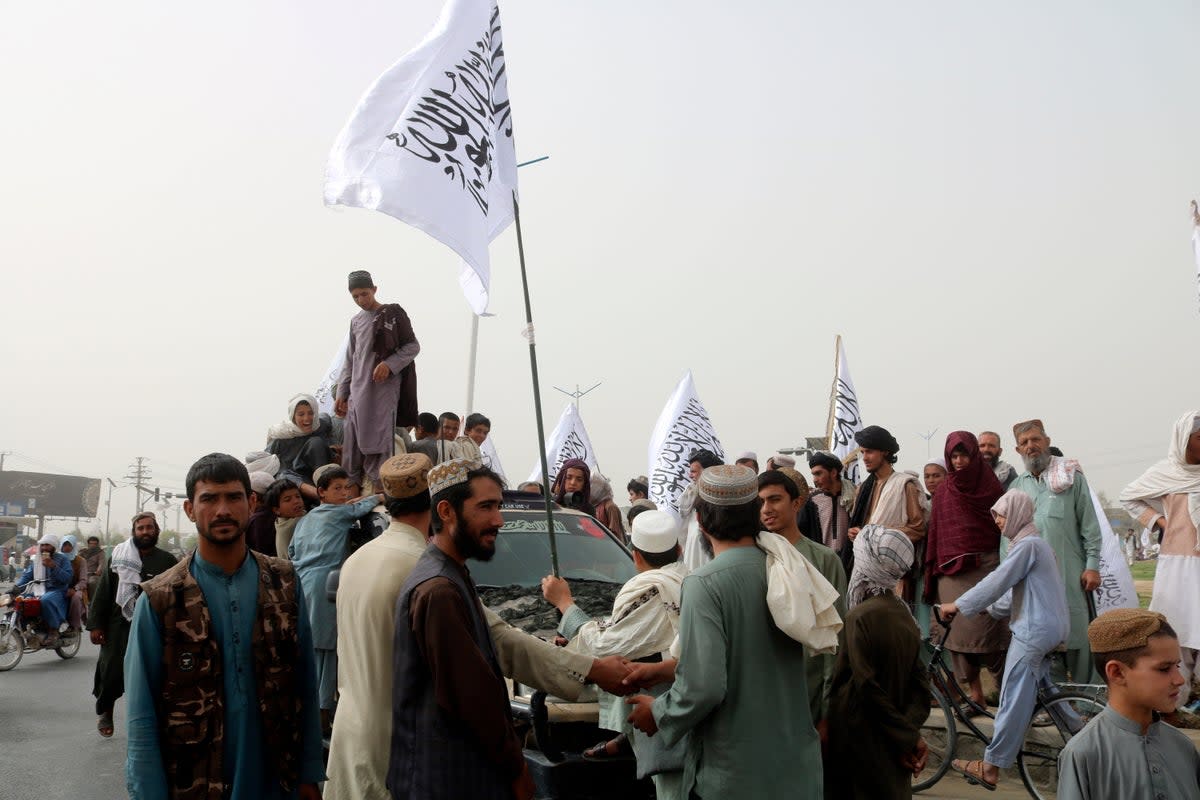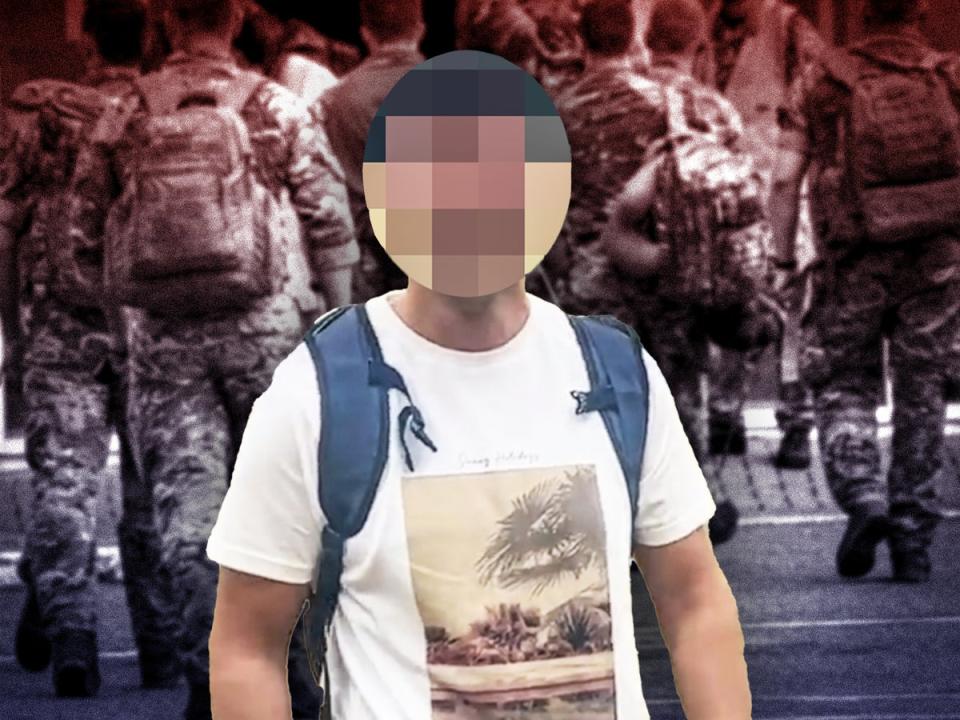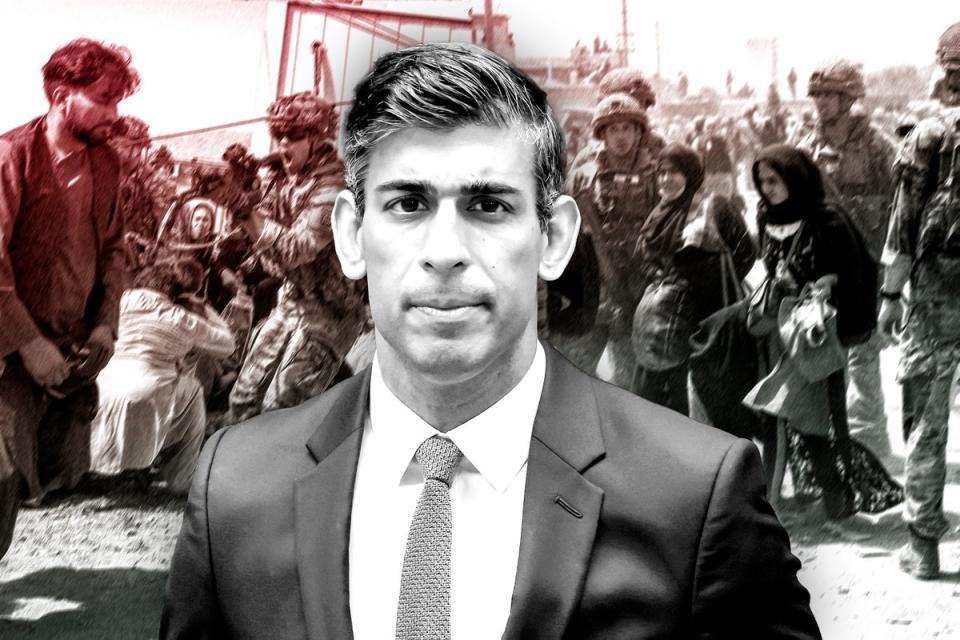Hundreds of Afghans who applied for sanctuary in UK waiting over two years for decision

Almost 750 Afghans in hiding from the Taliban because of their work with British forces have been waiting over two years for a decision on whether they can come to the UK, The Independent can reveal.
The 745 Afghans, who have applied for sanctuary based on their claimed work with the British Army, said they were being “destroyed” by the wait to hear if they can be brought to safety under the Afghan Relocations and Assistance Policy (Arap) scheme.
Armed forces minister James Heappey confirmed 2,026 Arap applicants were awaiting a decision as of Tuesday – despite the department pledging to slash the backlog to zero by the end of summer. Of these, a further 364 have been waiting more than 18 months, while 214 have been waiting more than a year.
Those waiting for a decision in Afghanistan will face a further agonising wait for relocation even if they are found eligible – with the government insisting they sort their own accommodation before they come to Britain.
The Independent has been calling for the UK to support Afghan war heroes who served alongside British forces and fought a successful five-month campaign to get a hero Afghan pilot rejected by the UK granted asylum.
Mr Heappey said ministers were “working at pace” to resolve the “small number of remaining complex cases”. But Labour’s shadow defence secretary John Healey said the Conservatives have “failed the brave Afghans who supported our troops”.
RECOMMENDED
Thousands of Afghans still in limbo as ministers miss own deadline to slash resettlement backlog
Rise in homeless Afghans on government’s deadline day to move out of hotels
Government ‘failing Afghans’ as only 233 people come to UK on flagship resettlement scheme
Mr Healey told The Independent: “It is simply unacceptable that 745 Afghans have been waiting more than two years for a decision on their eligibility under the Arap scheme, leaving them in limbo and likely fearing for their own safety.”
“This is a shameful saga of government failure on multiple fronts,” he added.
Former defence secretary Ben Wallace and then home secretary Priti Patel said at the time of the Taliban takeover of Afghanistan that “if you looked out for us, we will look after you”. And Mr Heappey said the Ministry of Defence has recruited more caseworkers and “made significant progress” processing applications. He said 58,000 decisions have been issued in the past three months.

An Afghan pilot who fought with British forces was refused safety in UK but was granted asylum after a campaign by The Independent.
But an Afghan intelligence analyst, who worked with the British forces, has been waiting for a decision on his application for over two years. He fled to the UK on a small boat and his case has been supported by two of his RAF supervisors. He told The Independent: “It is extremely hard on mental health to be waiting so long. This waiting time has completely destroyed my personal mental health because I am living in a completely uncertain situation. I don’t know why my case should take so much time.”
One former interpreter has now been waiting around 19 months for an Arap decision. He is living in hiding in Afghanistan and told The Independent: “I don’t have any information about my case. I don’t know what will happen to me, and I don’t know how long I can live in this situation. I have not been able to return to my home or my province since the Taliban take over because they have come to my place asking for me. I travel around and the situation is getting harder for me every day.”
Sarah Magill, managing director of Free From Fear, a charity that supports Afghans trying to resettle in the UK, said: “Afghans have been waiting for help since Kabul fell in August 2021. It should be unthinkable that they are still waiting for a decision. Government departments should not be passing these cases around like unwanted Christmas presents. The decision-making process lacks efficiency and expediency and must be remedied as a matter of urgency.”
Military chiefs and charities have urged Rishi Sunak to relocate eligible Afghans to the UK faster.

Sarah Fenby-Dixon, Afghan consultant for the Refugee Aid Network, is supporting a number of Afghans who have applied for the Ministry of Defence’s scheme but are still waiting to hear.
She said: “These are not just numbers. Each one is a vulnerable, at-risk person who has been living in limbo and under threat for months or years. It is well documented that the Taliban are exacting brutal attacks, including beatings, torture and murder on those they believe to have worked for foreign governments.
“Many Arap applicants are in hiding and cannot work; the psychological and financial stress for these people is now unbearable. When we question why people do not use legal routes to come to the UK, this is the answer.”
RECOMMENDED
Government ‘failing Afghans as safe routes not matching scale of need’
‘A just outcome’: Military chiefs and politicians hail common sense victory for Afghan war hero
Becky Hart, Lawyer at Afghan Pro Bono Initiative, which is run by the charity Safe Passage, said it was “outrageous that some of our clients have been left waiting for more than two years for a decision”.
She added: “This government must urgently commit more resources to the Afghan schemes and quickly arrange onward journeys so people can actually reach protection here and start to rebuild their lives.”
A Ministry of Defence spokesperson said: “We owe a debt of gratitude to those interpreters and other staff eligible under the ARAP scheme who worked for, or with, UK forces in Afghanistan. That’s why we have committed to relocating all eligible Afghans and their families to the UK under the ARAP scheme.
“Our absolute priority is supporting the movement of eligible people out of Afghanistan and we have made significant progress in improving the speed at which we can process applications, having relocated around 12,200 individuals to the UK so far under ARAP.”


